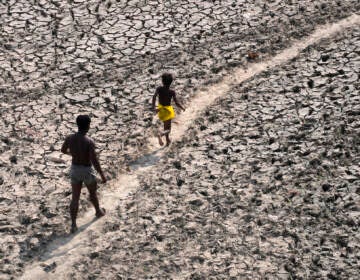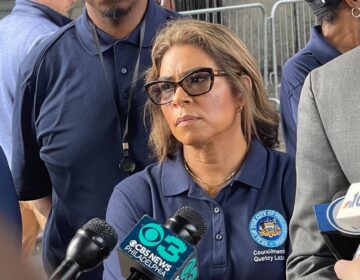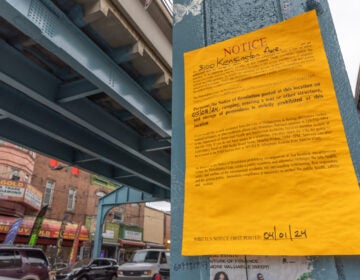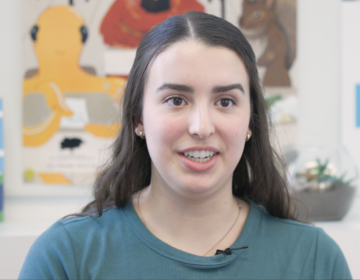For these young trainees, careers in solar look like Philly’s future
While Pa. primary candidates continue to support fossil fuels in the name of jobs, some young Philadelphians see a brighter future in the solar industry.
Listen 4:24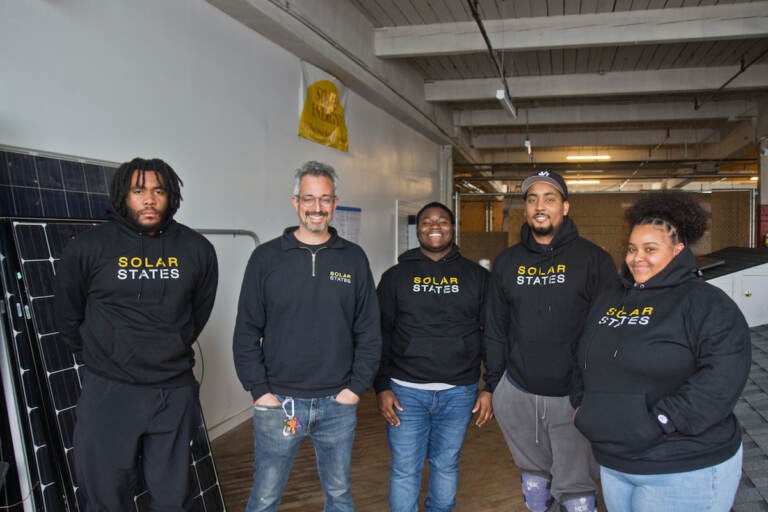
(From left) Bright Solar Futures students Jay Fitzgerald, instructor Micah Gold-Markel, Malik Hunt-David, Isaiah Smith, and Justine Michalczyk, inside the Energy Coordinating Agency’s solar training room. (Kimberly Paynter/WHYY)
Malik Hunt-David stands on a model rooftop, inside a big, boxy building in Kensington. The 18-year-old names parts of a solar panel, while an instructor quizzes him on how it’s attached to the roof.
Hunt-David is among the latest graduates of the Bright Solar Futures program, which trains young Philadelphians to install solar panels. The group took a test last week that could get them entry-level credentials to start working in the industry. They now embark on summer internships.
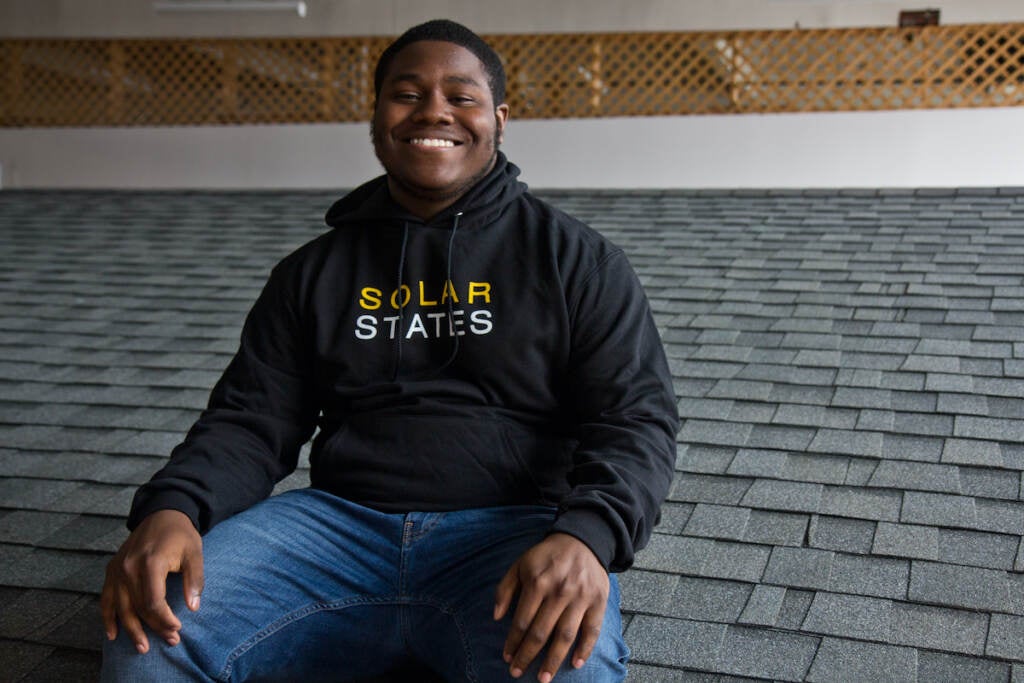
“Solar just sounded fun to learn and do,” Hunt-David said. “Just the whole thing about clean energy and just how to benefit the community and the environment.”
While Republican primary candidates in Pennsylvania double down on their support of planet-warming fossil fuels in the name of jobs, some young Philadelphians see a brighter future in the solar power industry — for themselves and their communities. Experts say training up a local workforce with renewable energy skills will be key to capturing the economic development potential of the energy transition.
The U.S. Bureau of Labor Statistics counts solar photovoltaic installer as one of the occupations projected to see the greatest percent growth over the next decade. According to the Solar Energy Industries Association, Pennsylvania is among the top 10 states for job growth in the solar industry since 2015.
“I always heard about solar, but I never really knew what it actually was until I came here,” said Jay Fitzgerald, who finished the training portion of Bright Solar Futures last week. “Then I found out, like, it’s the new thing. And it’s going to be real, real, real good in about 10 to 20 years.”

Some worry wages and benefits in renewable energy jobs don’t stack up to those of traditional fossil fuel jobs at coal- and gas-powered plants. Still, many see the promise of a blossoming industry.
“That’s what renewable energy and what solar is all about: it’s jobs and jobs and jobs,” said Micah Gold-Markel, founder of Solar States, a Philly-based solar installation company that helps teach Bright Solar Futures.
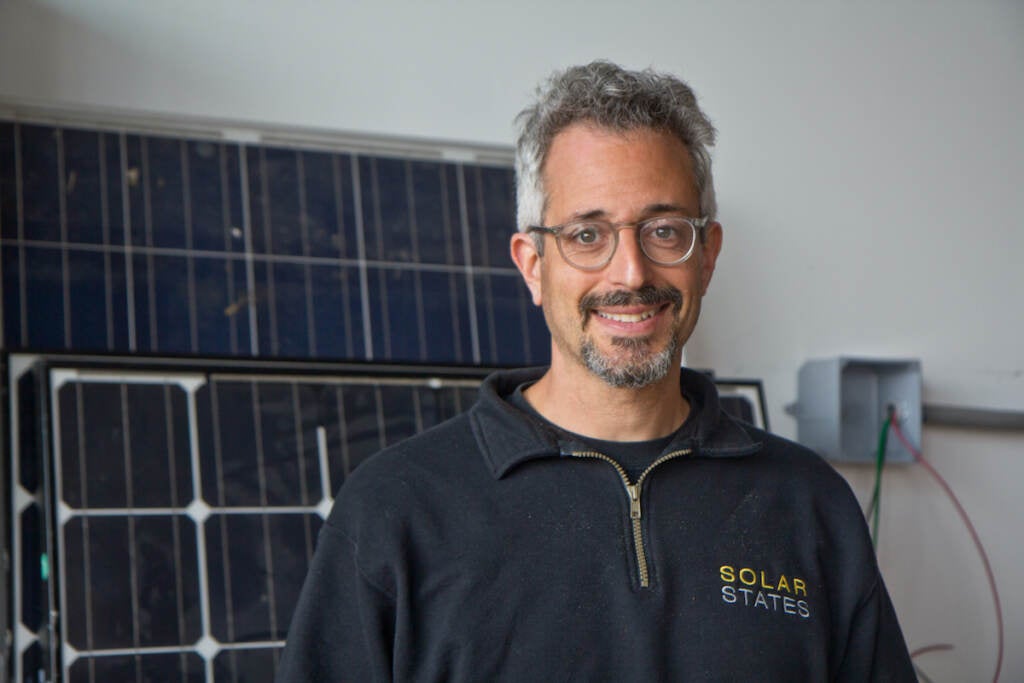
Training to take part in a growing industry
Bright Solar Futures is a career training program through PowerCorpsPHL, Solar States, the Energy Coordinating Agency and the Philadelphia Energy Authority. It’s a paid, roughly six-month hands-on learning experience for people between the ages of 18 and 30 who are unemployed or underemployed, and looking to get connected to a career in renewable energy (Frankford High School runs a version for students). Participants come from a variety of educational and work experience backgrounds, including those returning to the community after being incarcerated. Graduates get a workplace safety certification and other basic credentialing, and are placed in internships that often lead to jobs.
Bright Solar Futures is one of many solar job training programs across the country. These programs are important for training the workforce needed to build enough solar capacity to meet the country’s clean energy goals, said Christelle Khalaf, a professor at the University of Wyoming who studies the economic development potential of renewable energy.
“Demand [for solar industry labor] is definitely going to be a lot higher than supply,” she said. “So that sort of creates this big need for job training programs.”
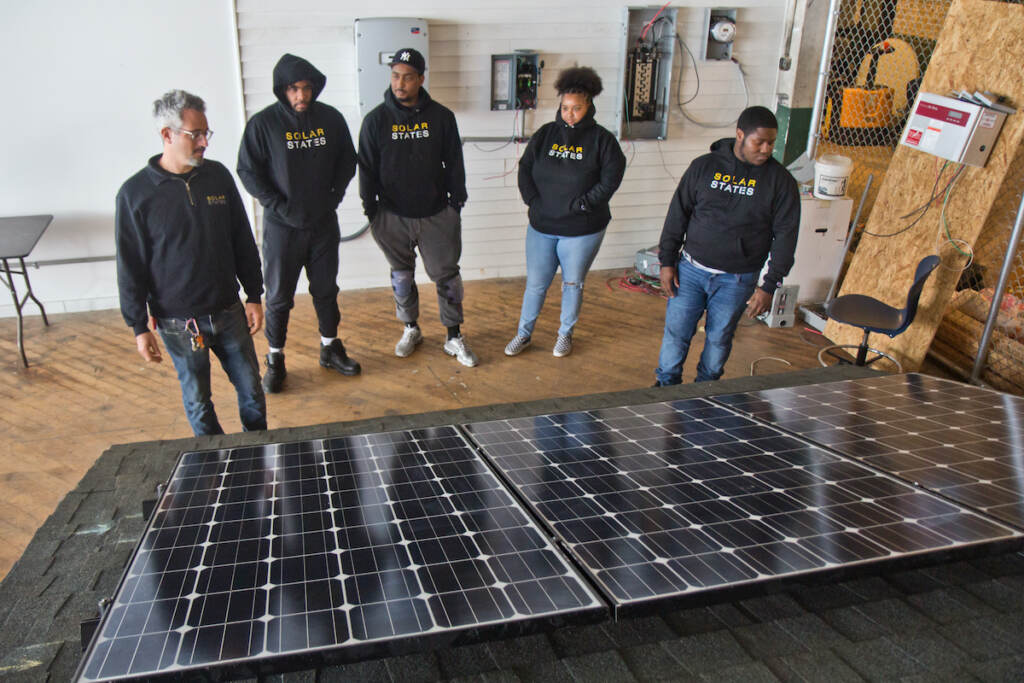
Job growth projections — like those for the solar industry — are imprecise, said David Passmore, professor emeritus at Penn State University, where he researched workforce development. But in general, the solar industry presents opportunities for workers.
“The first thing that people need to think about is, what [job is] available now? What can I get into? What can I learn?” Passmore said. “There’s no guarantee that you’ll still have that same job [in 10 years], but you need to get into the industry and you start developing work experience.”

Justine Michalczyk, another Bright Solar Futures participant, plans to do several different jobs throughout her career. She entered the training program with a background in electrical work after graduating from a technical high school — and hopes to get her electrical license.
“Because that’s what I really enjoy,” she said.
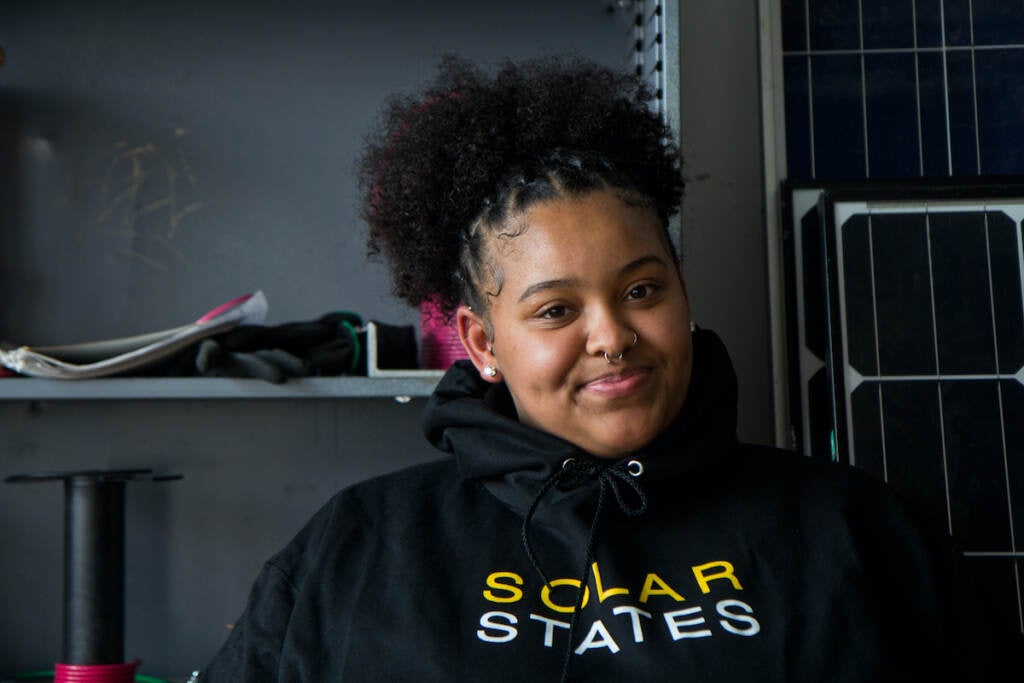
Micah Gold-Markel, of Solar States, was thrilled to hear his students’ dreams — because he’s seen Bright Solar Futures alumni achieve them.
“I can’t wait for another four or five years to go by to see all of these students and where they’re at — leading teams, going for their electrical licenses, taking their next steps in life,” he said.
A plan to give back to the community
The skills Bright Solar Futures participants learn could help fight climate change, but that’s not all they’re good for. Many participants are motivated primarily by community connections, said PowerCorpsPHL program director Devin Hamilton. Many learn about PowerCorpsPHL and Bright Solar Futures through word-of-mouth, particularly from alumni.
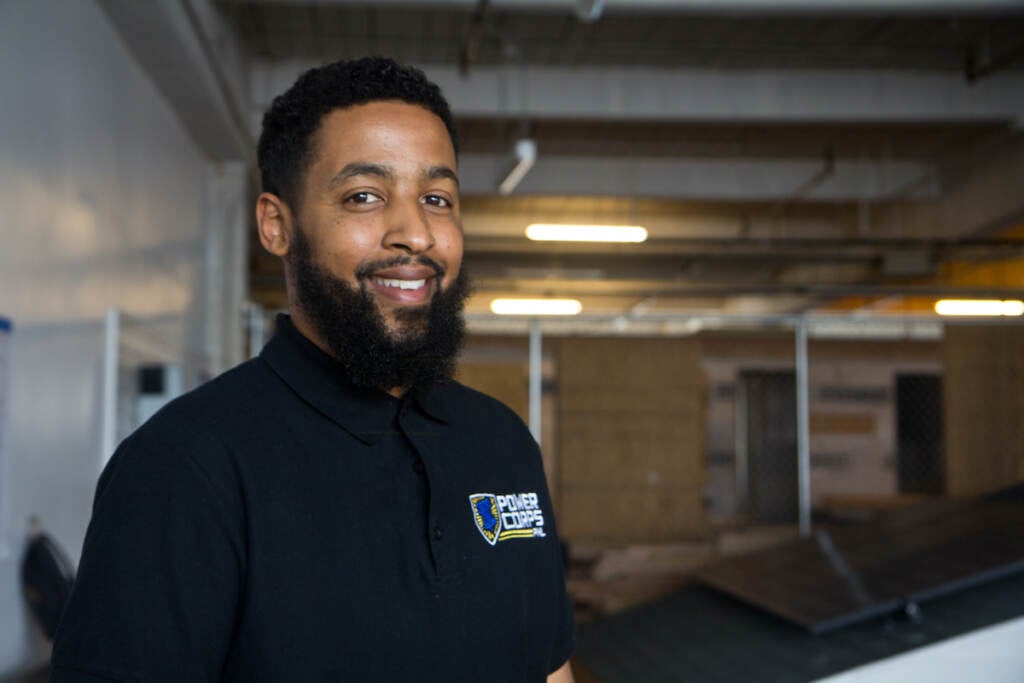
“I think people come in with the idea of, they want a career, they want a job, and they like the idea of what we do as far as giving back to the community,” he said.
That’s the case for Jay Fitzgerald and another Bright Solar Futures grad, Isaiah Smith. The two hope to one day start their own solar installation businesses — preferably together.
“Fossil fuel is only finite,” Smith said. “[There] has to be another pathway where somebody can be able to get a job, and the jobs are increasing. … The jobs are increasing every day.”
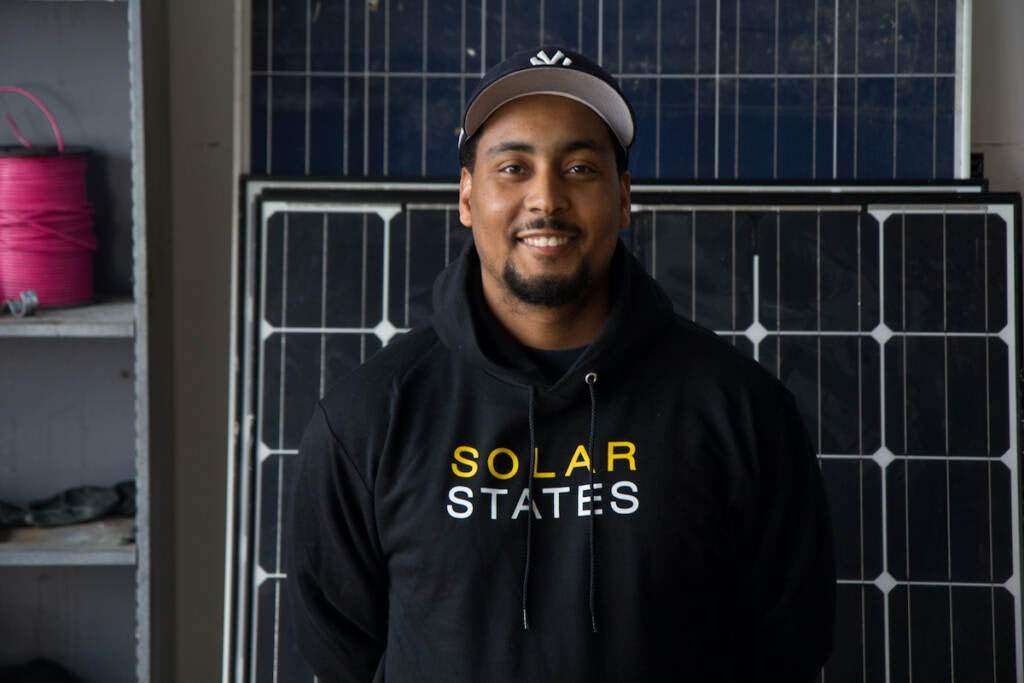
Before learning to install solar panels, Smith earned a bachelor’s degree in sustainability — and planned to work on environmental legislation in Washington D.C. He wasn’t able to find a job straight out of college, and decided to jump on the Bright Solar Futures training opportunity, because he sees it as a chance to give back to his community. He hopes to use his future company to train young Philadelphians and help them get their electrical licenses.
“Everything that you learn from here, you can be able to teach somebody else,” Smith said.
Smith also sees an opportunity to improve local air quality and the health of his neighbors, by shifting the city from fossil fuels to renewables.
“If we can be able to get a cleaner city through Solar States, through PowerCorps, … we can be able to help a lot of people,” he said.
Khalaf, the economic development researcher from University of Wyoming, said plans like Smith and Fitzgerald’s are key to helping Philly benefit from the energy transition.
“If you want to capture the economic impact of these projects, you want to have the local labor force,” Khalaf said. “You want them to get their wages and spend them in the community, versus having workers come from outside, [who] then spend that money in their own region.”
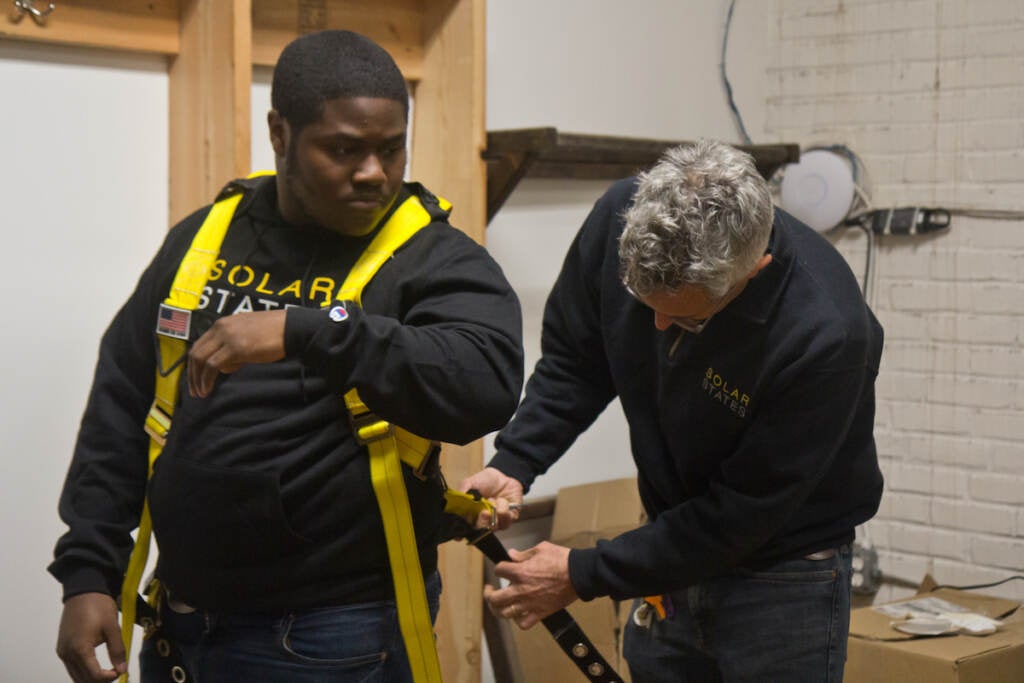
“If we want a community to fully capture the impact of these projects, they sort of have to be prepared,” she added.
Asked where they see themselves working in the future, many of this year’s Bright Solar Futures graduates said they hoped to travel — but Smith and Fitzgerald also see themselves installing solar power in their home city.
“We want to get that business and give back to the youth, give back to the community,” Fitzgerald said. “So I’ll find my way back to Philadelphia.”
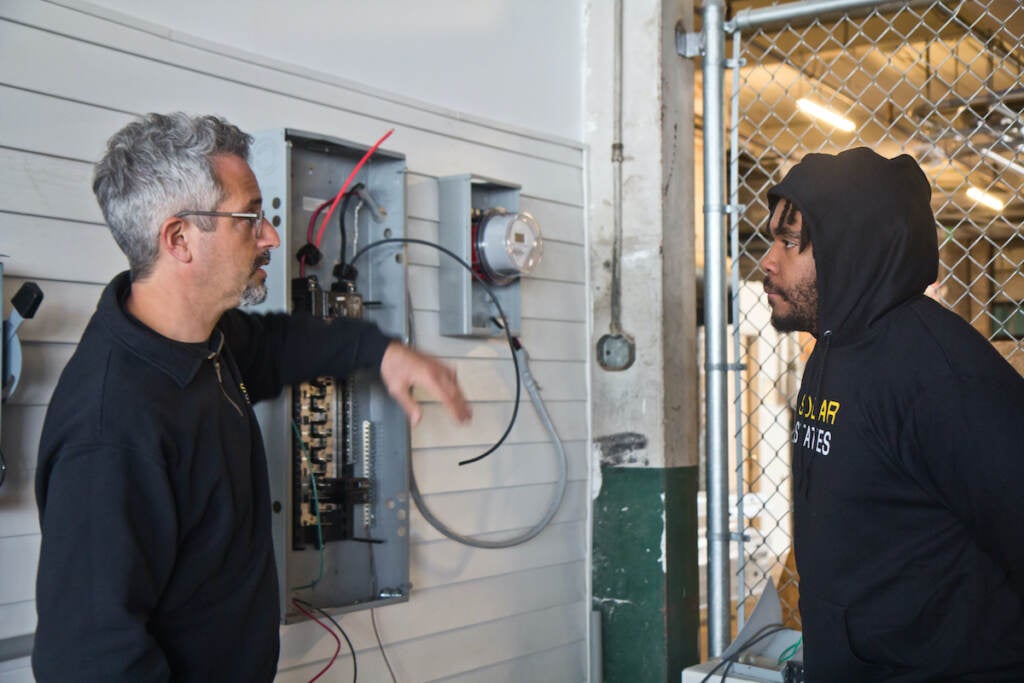

Subscribe to PlanPhilly
WHYY is your source for fact-based, in-depth journalism and information. As a nonprofit organization, we rely on financial support from readers like you. Please give today.




